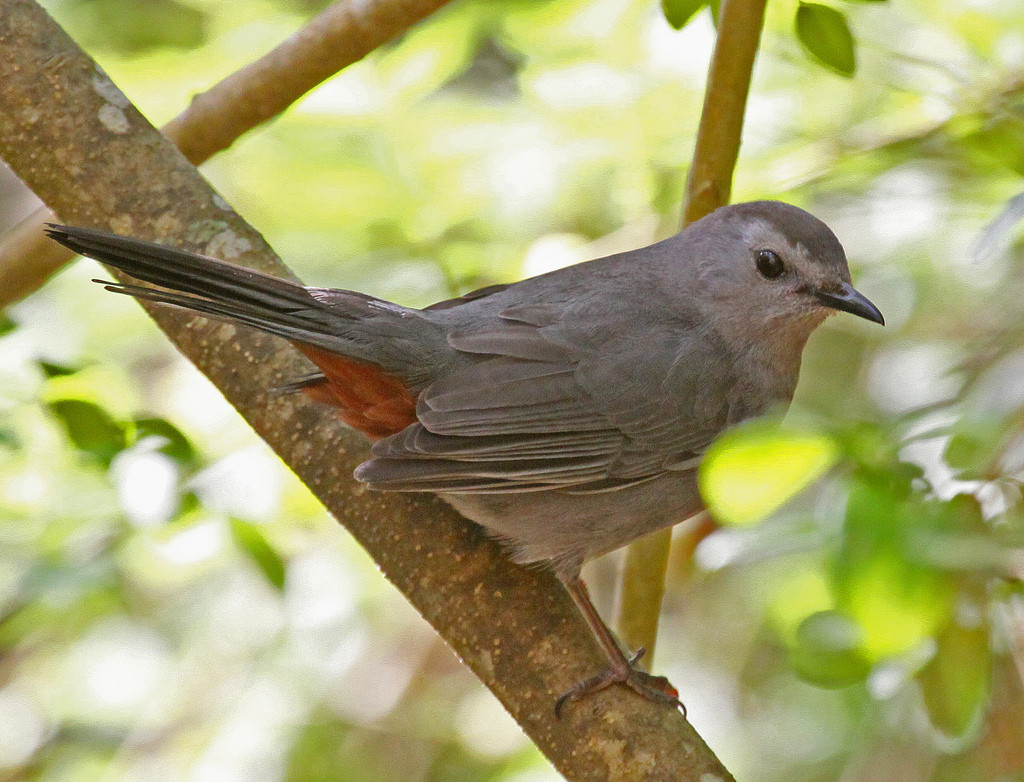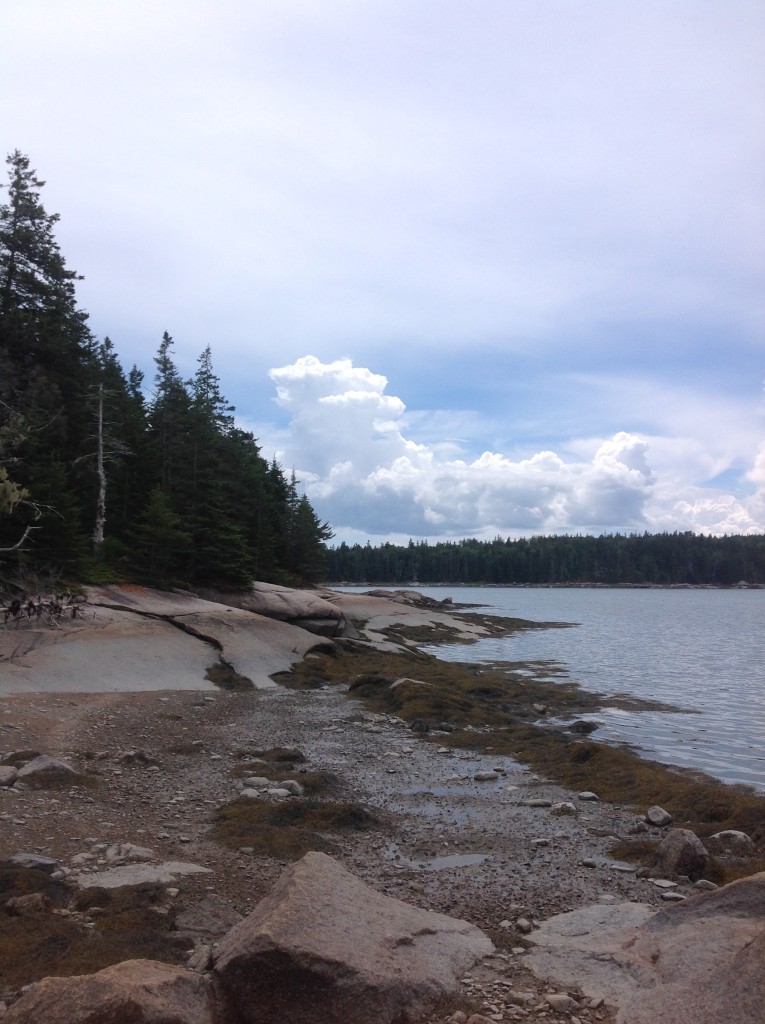“These crimson aerial creatures have wings which would bear them quickly to the regions of summer, but here is all the summer they want.” Thoreau, Journal, 12/11/55. Note: Though this lead-in entry from Thoreau’s Journal comes from the other side of the year, it’s phrasing seems perfect for what I’m seeing now. Just so with Henry, I think – he could see all the way to summer even on the shortest of days.
Early August: my daily negotiation with the squirrels and birds continues. From the deck of the breakfast table, I watch the blueberry bushes. Last month they looked as if they bore hundreds of little white candles to summer’s birthday; now, they offer a slow genuflection as their green-going-purple berries swell a bit each day and pull their branches down. It looks to be another good year. Albeit a contested one.
Here, for one, is a gray squirrel. He is well fed, amply rounded in this season of abundance, and he has an eye on my berries. A few don’t bother me, but if he picks to pack that rounded belly full, I will rise from my chair, open the window and hiss/bark at him – some hybrid threat intended to make me sound like trouble.
A few minutes ago, on of Henry Thoreau’s “striped squirrels,” known to us as chipmunks, emerged from beneath a branch facing me. “What a fat face you have,” I might have said if I were in nursery-rhyme frame of mind. Instead, I gawked and then began calculating: that must be at least four berries per cheek to get such a bulge. The chipmunk made for the yew bush in looping hops, and perhaps I imagined that his heavy head brought him down from each hop a little faster, but I don’ think so.
No-picking peace resumes. But only for a minute. Then, the catbird returns. He or she is a choosy sort, given sometimes to plucking a berry, rolling it in beak, and then…gasp…flicking it away over winged shoulder before seizing another. Scandalized then, I half-rise from my chair.
But this time, the catbird has junior in tow, and, as I watch, adult-C gives junior-C a berry tutorial. First she – let’s call our adult the mother of our backyard trio – hops 360 degrees around junior, getting, I suppose, his attention. Teachers will recognize this behavior. Then, with junior focused, she leaps/flies up a foot and nabs a berry from a low branch, settles back by junior and shows him the berry…which she then eats. Good bird.
Junior hops a bit and then waited. Where’s mine his head-tilt seems to say…mine, and mine and mine…it’s always appeared. In answer, the lesson gets repeated, even mama swallowing the plucked berry. Really? Junior seems to say. But then in somewhat ungainly imitation, he leaps at a berry…and misses. Ah, I think, it does take teaching and learning; even catbirds aren’t berry-adepts. The whole he’s-a-natural argument often hides the natural’s teachers, but there she is.
The lesson goes on, and mama-catbird must be working up a hunger with all her hopping because she eats more berries than I’ve ever witnessed. Finally, Junior nabs one.
Even I fluff my feathers with pride. It takes a whole berry-bush to raise a catbird.


